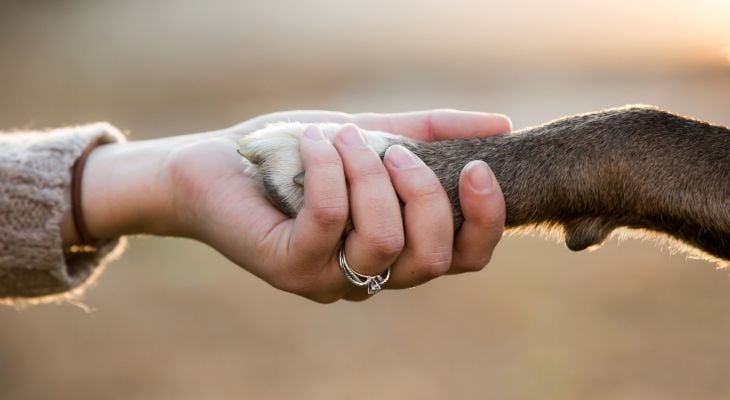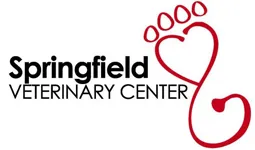
The grieving process includes accepting the reality of your loss, accepting that the loss and accompanying feelings are painful, and adjusting to your new life that no longer includes your pet.
How do I tell my family?
Family members usually are already aware of a pet's problems. However, you should review with them the information you have received from your veterinarian. Long-term medical care can be a burden that you and your family may be unable to bear emotionally or financially, and this should be discussed openly and honestly. Encourage family members to express their thoughts and feelings. Even if you have reached a decision, it is important that family members, especially children, have their feelings considered.
Children have special relationships with their pets. Excluding or protecting children from this decision-making process, because they are thought to be too young to understand, may only complicate their grieving. Children respect straightforward, truthful, and simple answers. If they are prepared adequately, children usually are able to accept a pet's death.
Will it be painless? Euthanasia is almost always accomplished by injection of a death-inducing drug. Your veterinarian may administer a tranquilizer first to relax your pet. Following the death-inducing injection, your pet will immediately go into a quiet and irreversible deep unconsciousness. Death will come quickly and painlessly.
How can I say goodbye?
The act of saying goodbye is an important step in managing the natural and healthy feelings of grief, sorrow, and sense of loss. Your pet is an important part of your life and it is natural to feel you are losing a friend--for you are.
Once the decision for euthanasia has been made, you and other family members may want to say goodbye to your pet. A last evening with your pet at home or a visit to the pet at the hospital may be appropriate. Family members who want to be alone with the animal should be allowed to do so. Farewells are always difficult.
How can I face the loss?
After your pet has died, it is natural and normal to feel grief and sorrow. The grieving process includes accepting the reality of your loss, accepting that the loss and accompanying feelings are painful, and adjusting to your new life that no longer includes your pet.
There are many signs of grief, but not everyone experiences them all, or in the same order. Even before death has occurred, your reaction may be to deny your pet is sick or injured when you learn the extent of your pet's illness or injuries.
Anger may follow denial. This anger can be directed toward people you normally love and respect, including your family and veterinarian. People will often say things that they do not really mean, perhaps hurting those whom they do not mean to hurt. You may blame yourself or others for not recognizing the illness earlier or for being careless and allowing the pet to be injured.
You also may feel guilt and depression. This is when you usually feel the greatest sense of loss. The tears flow, there are knots in your stomach, and you are drained of all your energy. Day-to-day tasks can seem impossible. Sometimes you may even ask yourself if you can go on without your pet. The answer is yes, but there are times when special assistance may be helpful.
Once you and your family come to terms with your feelings, you can begin to resolve and accept your pet's death. When you have reached resolution and acceptance, the feelings of anger, denial, guilt, and depression may reappear. If this does occur, the intensity of these feelings will be much less, and with time, these feelings will be replaced with fond memories.
Although the signs of grief apply whether the loss is of a loving pet or a human loved one, grieving is a personal process. Some people take longer than others to come to terms with denial, anger, guilt, or depression. If you understand that these are normal reactions, you will be better prepared to cope with your own feelings and to help others face theirs. Family members should be reassured that sorrow and grief are normal, natural responses to death.
They may not understand
Often, well-meaning family and friends may not realize how important your pet was to you or the intensity of your grief. Being honest with yourself and others about how you feel is best. If despair mounts, talk to someone who will listen about your pet and the illness and death.
I cannot forget
If you or a family member has great difficulty in accepting your pet's death and cannot resolve feelings of grief and sorrow, you may want to discuss those feelings with a person who is trained to understand the grieving process such as a grief counselor, clergyman, social worker, physician, or psychologist. Your veterinarian certainly understands the loving relationship you have lost and may be able to direct you to community resources, such as a pet loss support group or hot line. Talking about your loss will often help.
Should I get another pet?
The death of a pet can upset you emotionally, especially when euthanasia is involved. Some people may feel they would never want another pet. A new pet may help others get over the loss more quickly. Just as grief is a personal experience, the decision of when, if ever, to bring a new pet into your home is also a personal one. If a family member is having difficulty accepting the pet's death, bringing a new pet into the home before that individual has resolved his or her grief may imply that the life of the deceased pet was unworthy of the grief that is still being felt. Family members should come to an agreement on the appropriate time to acquire a new pet. Although you can never replace the pet you lost you can get another one to share your life.
Remembering your pet
The period from birth to old age is much more brief in pets than in people. Death is part of the life cycle for all creatures. It cannot be avoided, but its impact can be met with understanding and compassion. Try to recall the good times you spent with your pet. By remembering the pleasure of those times, you can realize your pet was worthy of your grief. You may also wish to establish a memorial of some type in honor of your pet. Examples include planting a tree or special flowers in a garden, creating a scrapbook or photo album, or making a charitable donation. Options for making a donation in the memory of your pet can be found at the American Veterinary Medical Foundation Web site, www.avmf.org
